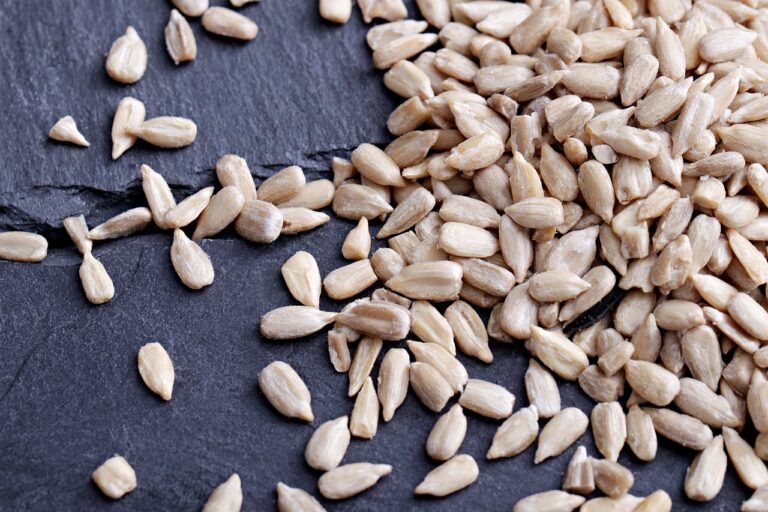Analyzing the Role of Protein Bars in Supporting Joint Health: Betsbhai9, Radha exchange, Lotus 365 login
betsbhai9, radha exchange, lotus 365 login: Protein bars have become a popular snack option for many people looking to fuel their bodies with a quick and convenient source of protein. While protein bars are often associated with muscle building and recovery, their role in supporting joint health is sometimes overlooked. In this article, we will delve into the the importance of protein bars in maintaining healthy joints and how they can contribute to overall joint health.
Understanding Joint Health
Before we dive into the role of protein bars in supporting joint health, let’s first understand what exactly joint health is and why it is important. Joints are the connections between bones that allow for movement and flexibility in the body. Healthy joints are essential for performing everyday tasks, such as walking, running, and even sitting down.
However, as we age or engage in repetitive physical activities, our joints can become vulnerable to wear and tear. Conditions such as osteoarthritis, rheumatoid arthritis, and other forms of joint pain can develop, causing discomfort and limiting mobility. Taking care of our joints through proper nutrition and lifestyle choices is crucial for maintaining overall health and well-being.
The Role of Protein Bars in Joint Health
Protein is a vital macronutrient that is essential for building and repairing tissues in the body, including muscles, tendons, and ligaments. Protein bars are a convenient way to increase your protein intake, especially for those who are on-the-go or have busy schedules. But how exactly do protein bars support joint health?
1. Collagen Content: Many protein bars contain collagen, a protein that is abundant in our connective tissues, including joints. Collagen helps to maintain the structural integrity of joints, reducing the risk of joint pain and stiffness. Consuming protein bars with collagen can support joint health and promote overall mobility.
2. Anti-Inflammatory Properties: Some protein bars contain ingredients with anti-inflammatory properties, such as omega-3 fatty acids and turmeric. Inflammation is a common cause of joint pain and swelling, so consuming protein bars with anti-inflammatory ingredients can help reduce inflammation in the body and support joint health.
3. Muscle Maintenance: Protein bars are often associated with muscle building and recovery, but strong muscles are crucial for supporting healthy joints. By consuming protein bars with a balanced amino acid profile, you can support muscle maintenance and reduce the strain on your joints during physical activities.
4. Nutrient Density: Protein bars are a convenient way to pack a variety of nutrients into a small snack. Nutrients such as vitamins C and D, calcium, magnesium, and zinc are essential for maintaining healthy joints and preventing joint-related conditions. Choosing protein bars with a diverse range of nutrients can support overall joint health.
Incorporating Protein Bars into Your Diet
Now that we understand the role of protein bars in supporting joint health, how can we incorporate them into our diet effectively? Here are some tips for maximizing the benefits of protein bars for joint health:
1. Choose Wisely: Not all protein bars are created equal. When selecting a protein bar, look for options that are low in sugar, free from artificial additives, and contain high-quality protein sources. Consider opting for bars that specifically target joint health, such as collagen-infused bars or those with anti-inflammatory ingredients.
2. Timing Is Key: Consuming a protein bar as a snack between meals or after a workout can help support muscle recovery and joint health. Aim to consume a protein bar within 30 minutes to an hour after physical activity to maximize its benefits for your joints.
3. Stay Hydrated: Hydration is essential for joint health, as water helps to lubricate and cushion the joints. Remember to drink plenty of water throughout the day, especially when consuming protein bars, to support optimal joint function.
4. Balance Your Diet: While protein bars can be a convenient source of protein, they should not replace whole foods in your diet. Aim to incorporate a variety of nutrient-dense foods, such as fruits, vegetables, whole grains, and lean proteins, to support overall joint health.
FAQs
1. Can protein bars alone improve joint health?
While protein bars can contribute to supporting joint health, they should be consumed as part of a balanced diet and healthy lifestyle. Incorporating a variety of nutrient-dense foods, staying active, and maintaining a healthy weight are also essential for maintaining healthy joints.
2. Are there any side effects of consuming protein bars for joint health?
Consuming protein bars in moderation is generally safe for most people. However, it’s important to read the ingredients list and nutrition facts label to ensure that the protein bar is free from allergens and artificial additives that may cause adverse reactions. If you have any concerns or underlying health conditions, it’s best to consult with a healthcare professional before incorporating protein bars into your diet.
3. How often should I consume protein bars for joint health?
The frequency of consuming protein bars for joint health can vary depending on your individual needs and activity level. It’s generally recommended to consume a protein bar as a snack between meals or after a workout to support muscle recovery and joint health. Listen to your body and adjust your intake based on your energy levels and daily physical activities.
In conclusion, protein bars can play a valuable role in supporting joint health by providing essential nutrients, collagen, and anti-inflammatory properties. By choosing high-quality protein bars, incorporating them strategically into your diet, and maintaining a balanced lifestyle, you can optimize the benefits of protein bars for your joints. Remember to prioritize whole foods, stay hydrated, and consult with a healthcare professional if you have any concerns about your joint health.







